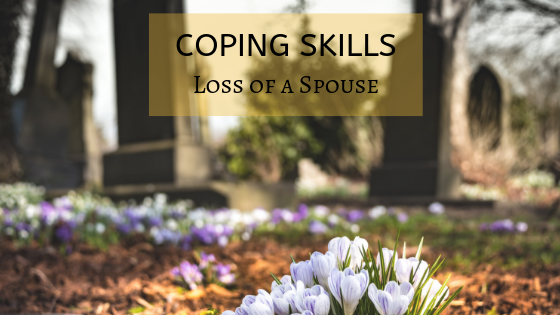Spouse death can be disastrous, regardless of whether the passing is sudden or following a prolonged sickness. One day you are hitched; after a while, you are single, alone, and lamenting. Being together for so long then suddenly left to deal with all the good and bad of life by yourself.
Between the intense feelings, lifestyle transforms, and the numerous reasonable thoughts that go with the demise of your mate, you likely feel overpowered and restless about your future.
Depression additionally becomes the biggest challenge for senior citizens managing the loss after passing of a companion, making it especially difficult to move further with their lives. It can likewise turn into a critical health risk for them.
In such circumstances, it is also vital that closed ones remain caring, patient, and understanding when helping somebody grieve the loved one’s death. Let’s know some sound coping skills to relieve your loss.
1. Take Yourself Easy
There is no “best” approach to feel after losing your companion. You may feel shocked, numb, restless, or brokenhearted. You may even feel angry with your life partner for leaving you all alone. You may cry a lot, or not at all. Grief is different to everybody.
Give space and time to yourself to mourn your loss. You may understand that to move on; you have to offer yourself the time to grieve. You won’t stop missing your spouse, though with the passing time you may observe that your discomfort gets more controllable.
2. Remember and Honor Their Special Days
You can frame the photographs of fun times together, plant a nursery in memory, pass on a family name to a child, or make a donation on the birthday of the deceased. What you pick is up to you, as long as it enables you to respect that one of a kind relationship that feels ideal to you.
3. Pamper Yourself with Your Hobbies
To relieve symptoms of depression after your spouse death involves yourself in the activities you love, like gardening, playing bridge, hiking, or golfing. It’ll be one of the best approaches for a grieving person to enjoy having free time by dedicating their long-neglected interests or passions.
4. Talk Therapy
Denying the demise actually detaches you from the emotional support system. It’ll increase the pain more. So, at this time, friends and family members should be available to them as much as possible. Discuss their death to comprehend what befell and properly remember them. Also, allow the bereaved to talk about their spouse, and you act as a good listener. Don’t avoid the topic, until the bereaved are uneasy talking about their situation.
It’s encouraging to share your memories with the deceased for the grieving person. You can also ask the person what they need.
Thus, grieving is necessary when your loved one dies to recover yourself thoroughly. It is a process, not an episode. Give yourself empathy and time. When you permit yourself time and use these coping skills, you’ll renew a sense of meaning in your life.
For more information, call us at: 03340277777 / 8017770323 or email us at: enquiry@newwpsite.tribecacare.com. Visit our page at: www.tribecacare.com.

